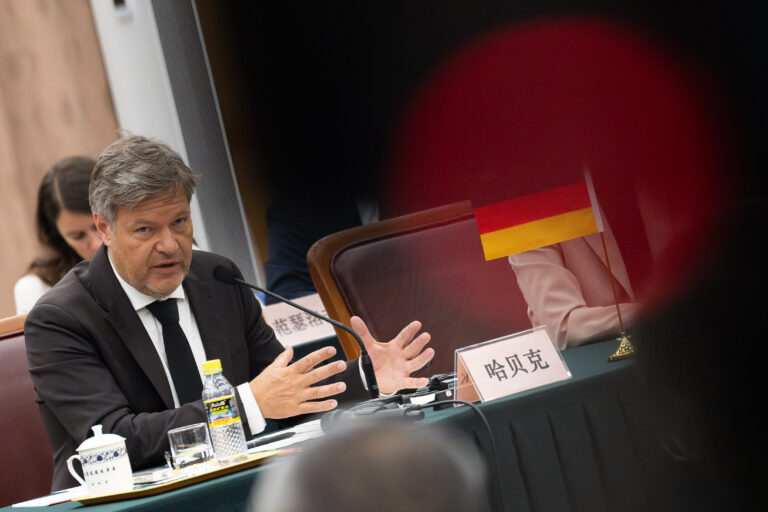China warned on Friday, ahead of President Trump’s arrival, that escalating friction with the EU over electric vehicles could spark a trade war.
“It’s important to understand that these are not punitive tariffs,” Habeck said during the first plenary session of the Climate and Transformation Dialogue.
The economy minister said countries such as the United States, Brazil and Turkey had imposed punitive tariffs, but the EU had not. “Europe does things differently.”
Harbeck said the European Commission had been conducting a detailed investigation over the course of nine months into whether Chinese companies had unfairly benefited from subsidies.
He said any countervailing measures resulting from the EU review “are not punitive”, adding that such measures are intended to compensate for the benefits Beijing has given to Chinese companies.
“Common and equal standards regarding market access should be achieved,” Habeck said.
Meeting with Zheng Shanjie, chairman of China’s National Development and Reform Commission, Habeck said the EU’s tariff proposals were aimed at levelling the playing field with China.
Zheng responded, “We will do our utmost to protect Chinese companies.”
The EU’s provisional tariffs are due to be applied by July 4, with the investigation continuing until November 2, at which point final tariffs, usually for five years, could be imposed.
Harbeck told Chinese officials they should debate the EU report’s conclusions.
“It is now important that we take seriously the opportunities that the report brings and engage in discussions and negotiations,” Habeck said.
Although trade tensions were an important topic to be discussed, the aim of the meeting was to deepen cooperation between the two developed countries towards a green transition.
This was the first plenary meeting of the Climate and Transformation Dialogue since Germany and China signed a Memorandum of Understanding on cooperation on climate change and green transition last June.
Countries acknowledged that they have a special responsibility to prevent global warming of 1.5 degrees Celsius (2.7 degrees Fahrenheit) above pre-industrial temperatures, a level that scientists consider crucial to prevent the most severe consequences.
China will add about 350 gigawatts (GW) of new renewable energy capacity in 2023 — more than half the global total — and if the world’s second-largest economy maintains that pace, it is likely to reach its 2030 target this year, according to a June report by the International Energy Agency.
While Harbeck praised the expansion of renewable energy in China, he said it was important to look at overall carbon emissions as well as the expansion of renewable energy.
Coal will still account for about 60% of China’s electricity supply in 2023. “China is adopting a coal-based energy mix,” Zheng said.
Three countries – China, India and Indonesia – account for around 75% of the world’s total coal combustion, and their governments tend to prioritise energy security, availability and cost over carbon emissions.
Zheng said China was building coal-fired power plants as a security measure.
“I still believe that a significant expansion of coal-fired generation can be done differently, given the impact that renewables will have on the system,” Habeck responded.

